关于中美经贸摩擦的事实与中方立场
新华网 2018-09-25 10:36

六、中国的立场
VI. China’s position
经济全球化是大势所趋,和平与发展是民心所向。把困扰世界的问题、影响本国发展的矛盾简单归咎于经济全球化,搞贸易和投资保护主义,企图让世界经济退回到孤立的旧时代,不符合历史潮流。中美经贸关系事关两国人民福祉,也关乎世界和平、繁荣、稳定。对中美两国来说,合作是唯一正确的选择,共赢才能通向更好的未来。中国的立场是明确的、一贯的、坚定的。
Economic globalization is the trend of the times, and peace and development represent the shared aspiration of all peoples. It therefore runs counter to the historical trend when one simply blames economic globalization for the problems in today’s world and one’s domestic development, and attempts to bring the global economy back to the old days of isolation by pursuing trade and investment protectionism. China-US economic and trade ties concern not only the well-being of the peoples of the two countries, but also world peace, prosperity and stability. Cooperation is the only correct option for China and the US, and only a win-win approach will lead to a better future. China’s position is clear, consistent and firm.
(一)中国坚定维护国家尊严和核心利益
1. China is firmly committed to safeguarding its national dignity and core interests.
积极发展中美经贸合作、巩固中美关系是中国政府和人民的愿望。对于贸易战,中国不愿打、不怕打、必要时不得不打。我们有强大的经济韧性和广阔的市场空间,有勤劳智慧、众志成城的中国人民,有国际上一切反对保护主义、单边主义和霸权主义的国家支持,我们有信心、有决心、有能力应对各种风险挑战。任何外部因素都不可能阻止中国发展壮大。同时,中国将对受经贸摩擦影响较大的企业和行业给予必要帮助。
It is the hope of the government and people of China to promote business cooperation and develop stronger ties with the US. China does not want a trade war, but it is not afraid of one and will fight one if necessary. We have a highly resilient economy, an enormous market, and the hard-working, talented and united Chinese people. We also have the support of all countries in the world that reject protectionism, unilateralism and hegemony. We have the confidence, resolve and capability to meet all risks and challenges. No external factor will hold back China’s development. Meanwhile, the worst-affected Chinese companies and sectors will receive assistance as needed.
中国一贯主张,对中美两国经贸关系快速发展过程中出现的问题和争议,双方应秉持积极合作的态度,通过双边磋商或诉诸世界贸易组织争端解决机制,以双方都能接受的方式解决分歧。中国谈判的大门一直敞开,但谈判必须以相互尊重、相互平等和言而有信、言行一致为前提,不能在关税大棒的威胁下进行,不能以牺牲中国发展权为代价。我们相信,美国的成熟政治家最终能够回归理性,客观全面认识中美经贸关系,及时纠正不当行为,使中美经贸摩擦的处理回到正确轨道上来。
China maintains that problems and disputes arising from a fast growing China-US business relationship should be addressed with a positive and cooperative attitude, through bilateral consultation or the WTO dispute settlement mechanism, in a way acceptable to both sides. China has kept the door to negotiations open, but negotiations can only happen when there is mutual respect, equality good faith and credibility. Negotiations cannot be conducted under the threat of tariffs, or at the cost of China’s right to development. We believe that mature political leaders in the US will eventually come back to their senses, see China-US economic and trade relations in an objective and comprehensive light, and redress misguided behaviors in time so that the efforts to resolve the trade friction between the two countries will come back to the right track.
(二)中国坚定推进中美经贸关系健康发展
2. China is firmly committed to the sound development of China-US economic and trade relations.
美国和中国是世界前两大经济体。中美经贸摩擦事关全球经济稳定与繁荣,事关世界和平与发展,应该得到妥善解决。中美和则两利,斗则俱伤,双方保持经贸关系健康稳定发展,符合两国人民根本利益,符合世界人民共同利益,为国际社会所期待。中国愿同美国相向而行,本着相互尊重、合作共赢的精神,聚焦经贸合作,管控经贸分歧,积极构建平衡、包容、共赢的中美经贸新秩序,共同增进两国人民福祉。中国愿意在平等、互利前提下,与美国重启双边投资协定谈判,适时启动双边自贸协定谈判。
The US and China are the world’s top two economies. Trade friction between the two countries should be properly resolved as it bears on global economic stability and prosperity as well as world peace and development. For China and the US, cooperation can lead to mutual benefits while confrontation will do no good to anyone. The sound and steady development of China-US economic and trade relations is in the fundamental interests of the two peoples and the common interests of people across the globe, and is what the international community expects of us. China would like to work with the US in the same direction, act in a spirit of mutual respect and win-win cooperation, focus on economic and trade cooperation, properly manage economic and trade differences, and make vigorous efforts to foster a new China-US economic and trade order that is balanced, inclusive and mutually beneficial, so as to contribute to the well-being of the two peoples. Under the condition of equality and mutual benefit, China is willing to resume negotiations with the US on a bilateral investment treaty, and launch bilateral FTA negotiations when appropriate.
(三)中国坚定维护并推动改革完善多边贸易体制
3. China is firmly committed to the reform and improvement of the multilateral trading system.
以世界贸易组织为核心的多边贸易体制是国际贸易的基石,是全球贸易健康有序发展的支柱。中国坚定遵守和维护世界贸易组织规则,支持开放、透明、包容、非歧视的多边贸易体制,支持基于全球价值链和贸易增加值的全球贸易统计制度等改革。支持对世界贸易组织进行必要改革,坚决反对单边主义和保护主义。坚持走开放融通、互利共赢之路,构建开放型世界经济,加强二十国集团、亚太经合组织等多边框架内合作,推动贸易和投资自由化便利化,推动经济全球化朝着更加开放、包容、普惠、平衡、共赢的方向发展。
The multilateral trading system centered on the WTO is the cornerstone of international trade, and a pillar for the sound and orderly development of global trade. China is firm in observing and upholding the WTO rules. China supports an open, transparent, inclusive and non-discriminatory multilateral trading system, and supports the reform of the global trade statistics system based on the global value chain and value-added in trade. China supports necessary reform of the WTO and firmly opposes unilateralism and protectionism. Committed to pursuing open, integrated and win-win development, China is working to build an open world economy, enhance cooperation within the G20, APEC and other multilateral frameworks, promote trade and investment liberalization and facilitation, and make economic globalization more open, inclusive, balanced and beneficial to all.
(四)中国坚定保护产权和知识产权
4. China is firmly committed to protecting property rights and intellectual property rights (IPR).
中国高度重视知识产权保护,将其作为完善产权保护制度最重要的内容之一。中国将不断完善知识产权保护相关法律法规,提高知识产权审查质量和审查效率,针对故意侵权积极引入惩罚性赔偿制度,显著提高违法成本。中国依法严格保护外商企业合法知识产权,对于各种形式的侵权事件和案件将认真查处、严肃处理。中国法院不断完善符合知识产权案件特点的诉讼证据规则,建立实现知识产权价值的侵权损害赔偿制度,加强知识产权法院体系建设,积极推动国家层面知识产权案件上诉机制,保障司法裁判标准统一,加快推进知识产权审判体系和审判能力向现代化迈进。中国愿意与世界各国加强知识产权保护合作,也希望外国政府加强对中国知识产权的保护。中国主张通过法律手段解决知识产权纠纷问题,反对任何国家以保护知识产权之名,行贸易保护主义之实。
China attaches great importance to IPR protection and views it as one of the most important part of the efforts to improve the system for property rights protection. China will keep improving its laws and regulations on IPR protection, enhance the quality and efficiency of IPR reviews, and introduce the system of punitive damage compensation for intentional IPR infringements to significantly raise the cost of law violations. China protects the lawful IPR of foreign businesses in strict accordance with the law, and takes stern measures to address all types of IPR infringement cases. Chinese courts will keep improving the litigation evidence rules for IPR cases, establish a damage compensation system that reflects the value of IPR, strengthen the IPR court system, advance the building of a national-level appeal mechanism for IPR cases, ensure unified judicial criteria, and modernize the IPR adjudication system and capability at a faster pace. China will enhance its cooperation with all countries to protect IPR, and hopes that governments of other countries will also step up their efforts to protect Chinese IPR. China believes that IPR disputes should be resolved through legal means, and opposes trade protectionism pursued by any country in the name of IPR protection.
(五)中国坚定保护外商在华合法权益
5. China is firmly committed to protecting the lawful rights and interests of foreign businesses in China.
中国将着力构建公开、透明的涉外法律体系,不断改善营商环境,为各国企业在华投资经营提供更好、更优质的服务。中国尊重国际营商惯例,遵守世界贸易组织规则,对在中国境内注册的企业,一视同仁、平等对待。中国鼓励包括外商投资企业在内的各类市场主体,开展各种形式的合作,并致力于创造平等竞争的市场环境。中国政府高度关注外国投资者合理关切,愿意回应和努力解决企业反映的具体问题。中国始终坚持保护外国投资者及其在华投资企业的合法权益,对侵犯外商合法权益的行为将坚决依法惩处。
China is committed to building an open and transparent foreign-related legal system, improving the business environment, and providing better, higher-quality service to businesses from all countries operating and investing in China. China respects international business practices, observes the WTO rules, and treats all businesses registered in China equally. China encourages market entities including foreign businesses to engage in various forms of cooperation, and stands committed to creating a level playing field in the market. The Chinese government pays close attention to the legitimate concerns of foreign investors, and stands ready to respond to and address their specific concerns. China will always protect the lawful rights and interests of foreign investors and foreign-invested businesses, and take firm measures to address violations of their lawful rights and interests in accordance with the law.
(六)中国坚定深化改革扩大开放
6. China is firmly committed to deepening reform and widening opening-up.
改革开放是中国的基本国策,也是推动中国发展的根本动力。中国改革的方向不会逆转,只会不断深化。中国开放的大门不会关闭,只会越开越大。中国继续按照既定部署和节奏,坚定不移深化改革、扩大开放,全面推进依法治国,建设社会主义法治国家。中国坚持发挥市场在资源配置中的决定性作用,更好发挥政府作用,鼓励竞争、反对垄断。中国和世界其他各国一样,有权根据自己的国情选择自己的发展道路包括经济模式。中国作为一个发展中国家,并非十全十美,愿意通过改革开放,学习借鉴先进经验,不断完善体制机制和政策。中国将切实办好自己的事情,坚定实施创新驱动发展战略,加快建设现代化经济体系,推动经济高质量发展。中国愿与世界各国分享中国发展新机遇。中国将实行高水平的贸易和投资自由化便利化政策,全面实行准入前国民待遇加负面清单管理制度,大幅放宽市场准入,扩大服务业对外开放,进一步降低关税,建设透明、高效、公平的市场环境,发展更高层次的开放型经济,创造更有吸引力的投资环境,与世界上一切追求进步的国家共同发展、共享繁荣。
Reform and opening-up are China’s basic policies, and provide fundamental driving force for its development. China will not reverse course, but only deepen its reform. China will not close its door to the world, but only open wider. Following the plans made and pace set, China will stay firmly committed to deepening reform and widening opening-up, advance the rule of law across the board, and build a socialist country under the rule of law. The market will play a decisive role in the allocation of resources and the government will play a better role to encourage competition and oppose monopoly. Like other countries, China has the right to choose its own development path, including the economic model, that suits its national reality. As a developing country, China is not perfect, but it is willing to draw on advanced experience and keep improving its systems, institutions and policies through reform and opening-up. China will manage its own affairs well, firmly implement an innovation-driven development strategy, accelerate the pace of modernizing its economy, and pursue economic development with higher quality. China is willing to share with other countries the new opportunities presented by its development. China will adopt policies to promote trade and investment liberalization and facilitation with higher standards, implement the system of pre-establishment national treatment plus a negative list across the board, significantly ease market access, further open up the service sector, further cut tariffs, build a transparent, efficient and fair business environment, develop an open economy at a higher level, and create a more attractive investment environment. In this way, China will share development and prosperity with all countries that aspire to progress.
(七)中国坚定促进与其他发达国家和广大发展中国家的互利共赢合作
7. China is firmly committed to mutually beneficial cooperation with other developed and developing countries.
中国将与欧盟一道加快推进中欧投资协定谈判,争取早日达成一致,并在此基础上将中欧自贸区问题提上议事日程。中国将加快中日韩自贸区谈判进程,推动早日达成“区域全面经济伙伴关系协定”。中国将深入推进“一带一路”国际合作,坚持共商共建共享原则,努力实现政策沟通、设施联通、贸易畅通、资金融通、民心相通,增添共同发展新动力。
China will work with the EU to expedite and strive for early consensus in the negotiations on the China-EU Investment Agreement, and, on this basis, take the China-EU FTA onto the agenda. China will accelerate negotiations on the China-Japan-ROK Free Trade Area and work for early conclusion of the Regional Comprehensive Economic Partnership (RCEP). China will promote deeper cooperation under the framework of the Belt and Road Initiative based on the principles of consultation, cooperation and benefit for all, and make efforts to achieve policy, infrastructure, trade, financial, and people-to-people connectivity and create new drivers for common development.
(八)中国坚定推动构建人类命运共同体
8. China is firmly committed to building a community with a shared future for mankind.
面对人类发展面临的一系列严峻挑战,世界各国特别是大国要肩负起引领和促进国际合作的责任,相互尊重、平等协商,坚决摒弃冷战思维和强权政治,不搞唯我独尊、你输我赢的零和游戏,不搞以邻为壑、恃强凌弱的强权霸道,妥善管控矛盾分歧,坚持以对话解决争端、以协商化解分歧,以文明交流超越文明隔阂、文明互鉴超越文明冲突、文明共存超越文明优越。中国将继续发挥负责任大国作用,与其他国家一道,共同建设持久和平、普遍安全、共同繁荣、开放包容、清洁美丽的世界。
Faced with a host of grave challenges to human progress, all countries, particularly major countries, need to shoulder the obligation and responsibility of guiding and promoting international cooperation. Countries should respect each other, engage in discussions as equals, and resolutely reject the Cold War mentality and power politics. Countries should not engage in a zero-sum game that puts one’s self-interest first and sees others’ gains as one’s losses, nor should they follow a hegemonic approach that advocates beggar-thy-neighbor policies and believes in the strong bullying the weak. Instead, countries should manage differences and tensions properly, settle disputes and disagreements through dialogue and consultation, and replace estrangement with exchange, clashes with mutual learning, and superiority with coexistence among civilizations. China will continue to act as a responsible major country, and join every other country in building an open, inclusive, clean and beautiful world that enjoys lasting peace, universal security and common prosperity.
得道多助,失道寡助。面对不确定不稳定不安全因素增多的国际形势,中国不忘初心,始终与世界同行,顺大势、担正义、行正道,坚定不移维护多边贸易体制,坚定不移推动全球治理体系变革,始终做世界和平的建设者、全球发展的贡献者、国际秩序的维护者,坚定不移推动构建人类命运共同体。
“A just cause enjoys abundant support while an unjust one finds little support.” In a world of increasing uncertainty, instability and insecurity, China will remain true to its original aspiration, follow the trend of the times, shoulder its responsibility for justice, and pursue the greater good. It will unswervingly safeguard the multilateral trading system, press forward with the reform of global governance, promote world peace, contribute to global development, uphold international order, and build a community with a shared future for mankind.
(注1)联合国商品贸易统计数据库。
(注2)美中贸易全国委员会和牛津经济研究院报告《理解中美经贸关系》,2017年1月。
(注3)同上。
(注4)同上。
(注5)中国汽车工业协会网站(http://www.auto-stats.org.cn)。
(注6)通用汽车公司网站(http://www.gmchina.com)。
(注7)英特尔公司网站(http://www.intel.com)。
(注8)苹果公司网站(http://www.apple.com)。
(注9)中国商务部:《关于中美经贸关系的研究报告》,第31页。
(注10)高盛公司网站(http://www.goldmansachs.com),《美国制造还是中国制造?处在十字路口的25年供应链投资》,2017年5月。
(注11)安佳·曼纽尔:《中国技术不是敌人》,《大西洋》月刊,2018年8月。
(注12)德意志银行:《估算美国和主要贸易伙伴之间的经济利益》,2018年6月。
(注13)卡内基国际和平基金会:《美国对华出口的政治障碍与美中贸易赤字》,2017年4月10日。
(注14)巴里·艾肯格林:《嚣张的特权:美元兴衰和国际货币体系的未来》,牛津大学出版社,2011年。
(注15)中国国家统计局数据。
(注16)同上。
(注17)普华永道会计事务所所属思略特管理咨询公司:《2017全球创新1000强》。
(注18)康奈尔大学、欧洲工商管理学院、世界知识产权组织:《全球创新指数2018》。
(注19)中国国家统计局:《中国2017年国民经济和社会发展统计公报》,2018年2月28日。
(注20)中华人民共和国国务院新闻办公室:2017中国知识产权发展状况新闻发布会,2018年4月24日。
(注21)美国全国广播公司网站(https://www.cnbc.com),2018年6月27日。
(注22)中华人民共和国国务院新闻办公室:《中国与世界贸易组织》白皮书,2018年6月。
(注23)中国最高人民法院数据。
(注24)中国国家知识产权局:《2016年中国知识产权保护状况》。
(注25)中国国家知识产权局:《统计年报2012》、《专利业务工作及综合管理统计月报2017》,其中2017年数据为发明专利申请量。
(注26)中国国家工商行政管理总局商标局:《中国商标品牌战略年度发展报告(2017)》。
(注27)尼古拉斯·拉迪:《中国:强制技术转移和盗窃?》,彼得森国际经济研究所,2018年4月20日。
(注28)中国中央政府门户网站(http://www.gov.cn),2011年5月10日。
(注29)美国企业研究所网站(http://www.aei.org),《中国在美国的投资》。
(注30)“产品市场监管指标”(Indicators of Product Market Regulation),衡量的是各国市场监管政策对产品公平竞争的阻碍程度,得分越高表示阻碍越大。该指标根据“政府的控制程度”“对创业的阻碍”“对贸易和投资的阻碍”三个部分综合评分。自1998年开始,该指标每五年统计一次,目前已纳统年份包括1998年、2003年、2008年和2013年。数据采集使用的是问卷调研方式,由各国官方相关人士填写。该指标统计范围包括35个经合组织国家和12个非经合组织国家。这里的产品实际上也包含服务的内容。
(注31)“国外供应商差别待遇指标”(Differential Treatment of Foreign Suppliers),属于“产品市场监管指标”中“对贸易和投资的阻碍”部分的二级指标,根据对航运、陆运和空运的限制,对国外专业人士从业的限制,对国外相关主体申诉的限制,对反竞争行为的限制,监管政策壁垒以及贸易便利化措施进行综合评分,反映一国市场对他国产品的歧视程度,得分越高表示歧视越严重。
(注32)经合组织网站(http://www.oecd.org)。
(注33)美国白宫网站(http://uscode.house.gov),《购买美国产品法案》,该法案对适当放宽限制的情况作了补充说明。
(注34)美国白宫网站(http://uscode.house.gov),《购买美国产品法案》,该法案也对可适当放松限制的情况作了补充说明。
(注35)美国国会网站(https://www.congress.gov),《农业、农村发展、食品和药品管理及相关机构拨款法案》。
(注36)美国国会网站(https://www.congress.gov),《国防授权法案》。
(注37)美国国会网站(https://www.congress.gov),《2007年外商投资与国家安全法案》。
(注38)根据美国外国投资委员会(CFIUS)向美国国会提交的年度报告整理,美国财政部网站(https://www.treasury.gov)。
(注39)美国财政部网站(https://www.treasury.gov),2008年11月21日。
(注40)美国国会网站(https://www.congress.gov)。
(注41)好工作优先组织网站(https://www.goodjobsfirst.org),2015年3月。
(注42)好工作优先组织网站(https://subsidytracker.goodjobsfirst.org)。
(注43)同上。
(注44)美国财政部网站(www.treasury.gov)。
(注45)美国能源部网站(http://www.energy.gov)。
(注46)好工作优先组织网站(https://subsidytracker.goodjobsfirst.org)。
(注47)约瑟夫·格劳勃和帕特里克·韦斯特霍夫:《2014年农场法案与世贸组织》,《美国农业经济学杂志》,2015年。
(注48)兰迪·施奈普夫:《农场法案条款与世贸组织合规》,美国国会研究局,2015年4月22日。
(注49)兰迪·施奈普夫:《2014年农场法案下的农场安全网支出》,美国国会研究局,2017年8月11日。
(注50)联合国贸发组织网站(http://unctad.org)。
(注51)美国国会问责局2006年发布的报告《美中贸易——取消非市场经济方法将降低部分企业反倾销税》。
(注52)曾经担任过1981-1983年美国国际贸易管理署副部长助理的加里·霍利克先生曾向国会财政委员会这样描述替代国选择:当一个人得出结论时,往往凭借的是一种感性认识,如对中国的毛巾案中,我们列举了巴基斯坦、泰国、马来西亚、民主德国、哥伦比亚和印度作为替代国,但这种列举没有任何理性可言。
(注53)“232调查”指美国商务部根据《1962年贸易扩展法》第232条款授权,对特定产品进口是否威胁美国国家安全进行立案调查,并在立案之后270天内向总统提交报告,美国总统在90天内作出是否对相关产品进口采取最终措施的决定。
(注54)查德·鲍恩推特,2018年5月27日。
(注55)“201条款”指美国《1974年贸易法》第201-204节。根据该条款规定,美国国际贸易委员会(USITC)对进口至美国的产品进行全球保障措施调查,对产品进口增加是否对美国国内产业造成严重损害或严重损害威胁作出裁定,并在120天向总统提交报告和建议。总统根据法律授权,在收到美国国际贸易委员会报告后140天内作出最终措施决定。
(注56)“301条款”是美国《1974年贸易法》第301条的俗称。根据这项条款,美国可以对它认为是“不公平”的其他国家的贸易做法进行调查,并可与有关国家政府协商,最后由总统决定采取提高关税、限制进口、停止有关协定等报复措施。
(注57)彼得森国际经济研究所网站(http://piie.org),《流氓301:特朗普准备重新使用另一个过时的美国贸易法?》。
(注58)罗伯特·韦德:《美国悖论:自由市场意识形态和指导推动的隐蔽实践》,《剑桥经济学杂志》,2017年5月。
(注59)美国总统办公室,2009年12月。
(注60)美国总统办公室,2010年8月。
(注61)美国总统办公室,2011年6月。
(注62)美国全国制造商协会,2011年12月。
(注63)美国总统办公室和国家科技委员会,2012年2月。
(注64)美国总统办公室,2011年。
(注65)美国总统办公室、国家科技委员会、先进制造国家项目办公室,2013年1月。
(注66)美国能源部,2013年4月。
(注67)美国科技政策办公室,2013年3月。
(注68)美国国家标准和技术研究院,2013年5月。
(注69)美国国家科技委员会,2016年10月。
(注70)美国战略和国际研究中心,2018年3月。
(注71)韦恩·莫里森:《中美贸易问题》,美国国会研究局,2017年3月6日。
(注72)美国波尔州立大学:《美国制造的神话与现实》,2015年6月。
(注73)阿里·赖克:《世贸组织争端解决机制的有效性》,欧洲大学研究院法律系,2017年11月。
(注74)特朗普推特,2017年1月3日。
(注75)特朗普推特,2018年7月3日。
(注76)美国有线电视新闻网网站(https://www.cnn.com),2018年4月3日。
(注77)彼得森国际经济研究所网站(https://piie.com)。
(注78)彼得森国际经济研究所网站(https://piie.com),《特朗普、中国与关税:从大豆到半导体》,2018年6月18日。
(注79)纽约时报网站(https://nytimes.com),《与中国的贸易战在前线是什么样子?》。
(注80)路透社,《美中贸易关税对美国企业的冲击》,2018年7月30日。
(注81)赫芬顿邮报网站(https://www.huffingtonpost.com),《美国最大铁钉制造商很快将因特朗普关税停产》,2018年6月29日。
(注82)彼得森国际经济研究所网站(https://piie.com),《特朗普提出的汽车关税将使美国汽车制造商出局》,2018年5月31日。
(注83)美国国家纳税人联盟网站(https://www.ntu.org),2018年5月3日。
(注84)美国汽车制造商联盟网站(https://autoalliance.org),2018年6月27日。
(注85)美国全国广播公司网站(https://www.nbc.com),2018年7月2日。
(注86)夏洛特观察家报网站(https://www.charlotteobserver.com),《特朗普关税如何损害卡罗来纳》,2018年6月21日。
(注87)彭博新闻社网站(https://www.bloombergquint.com),2018年6月25日。
(注88)亚当·波森:《特朗普经济民族主义的代价:外国对美投资的损失》,2018年7月24日。









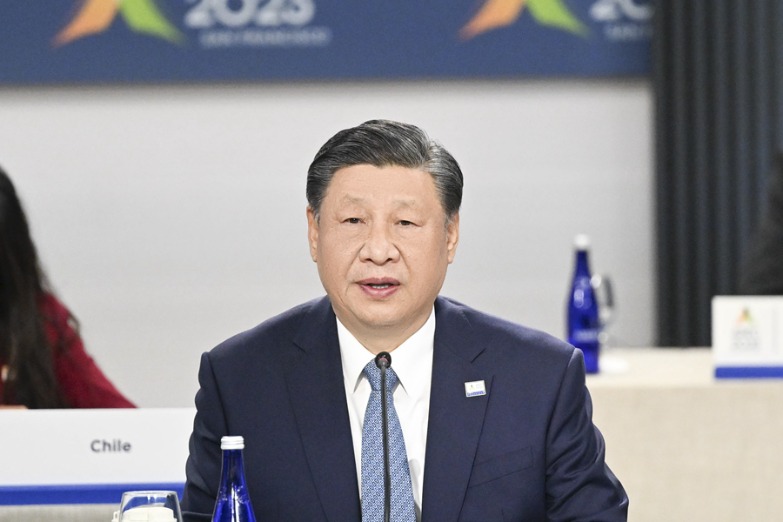
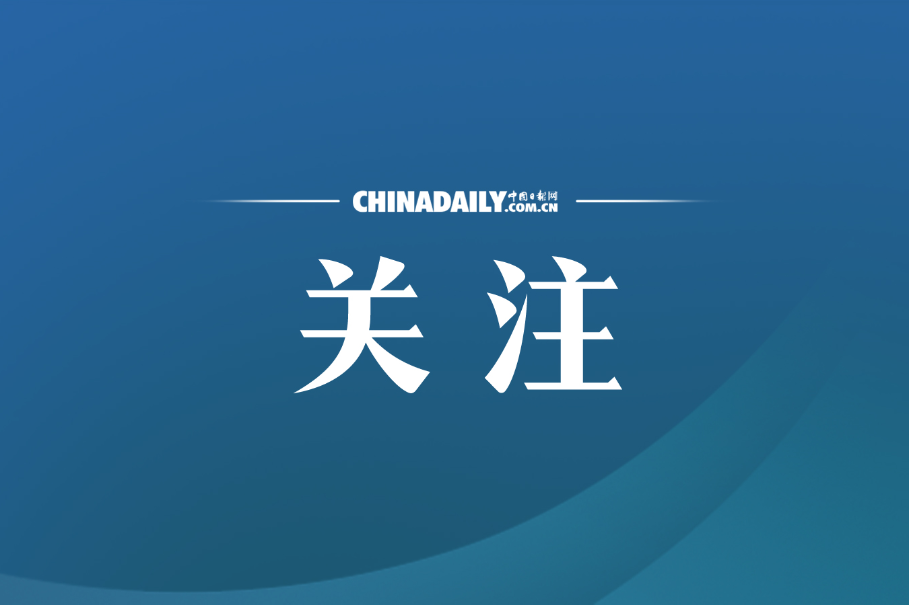
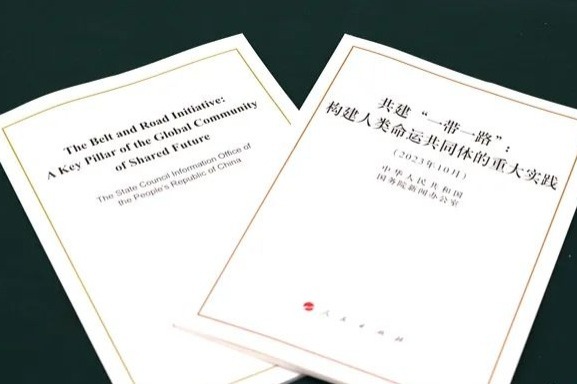
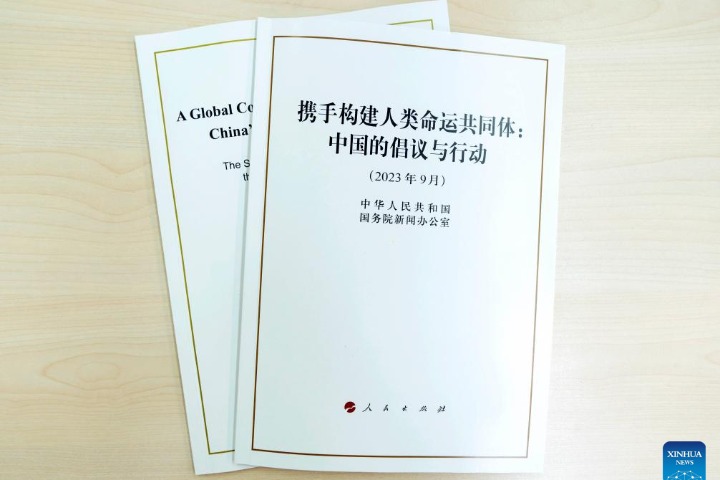
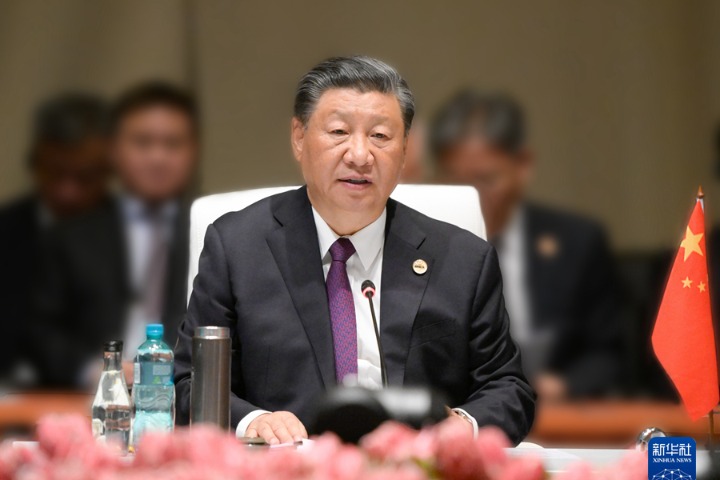



 英语点津微信
英语点津微信 双语小程序
双语小程序